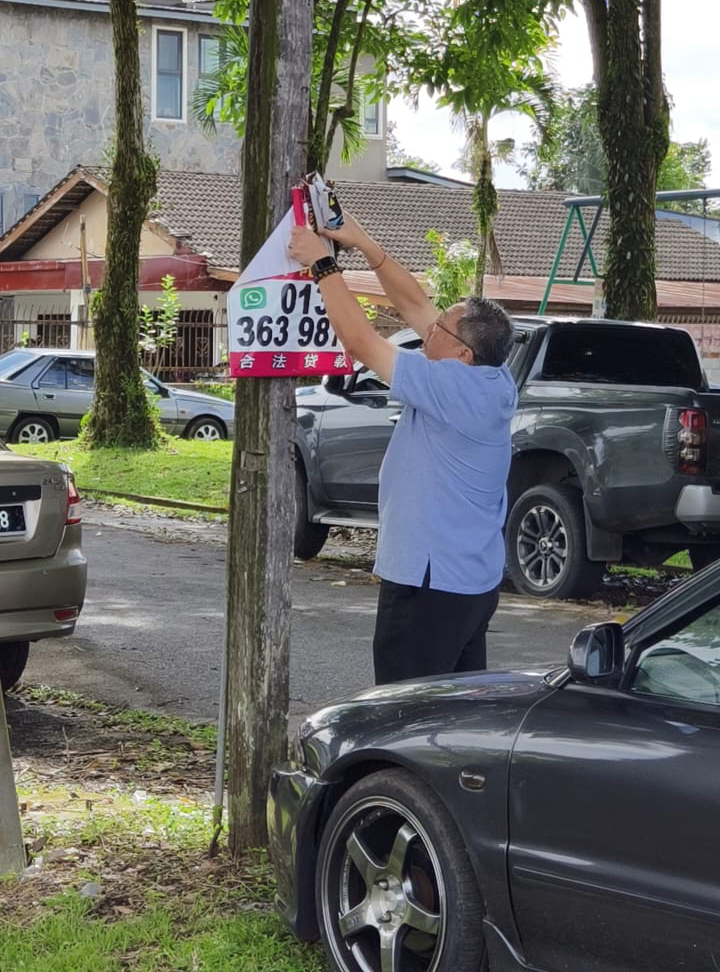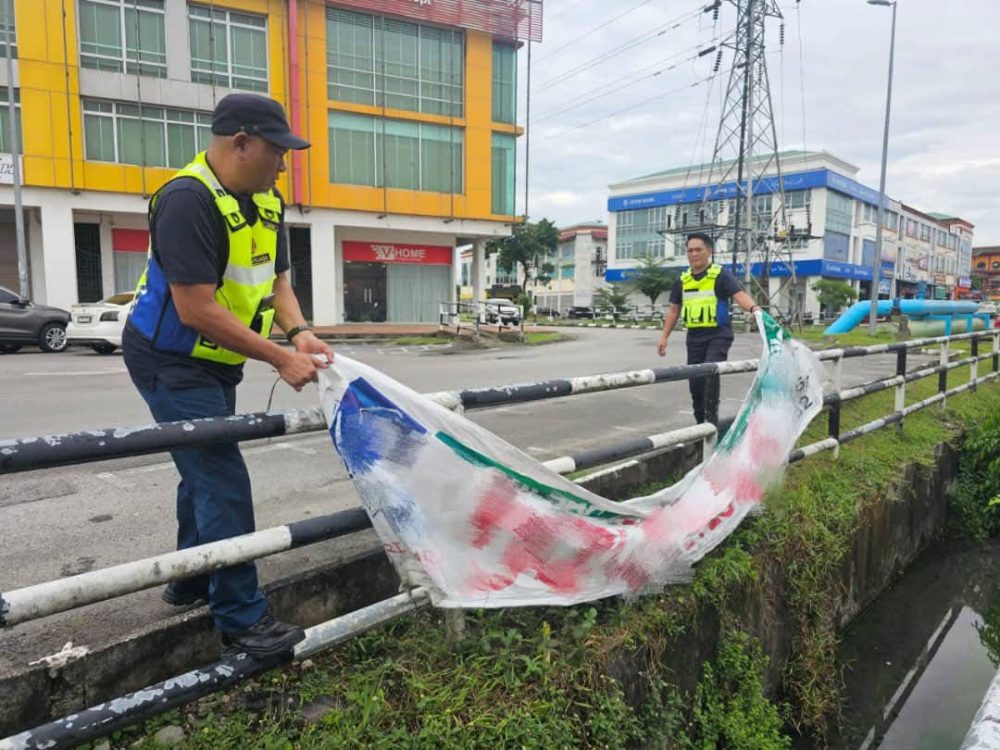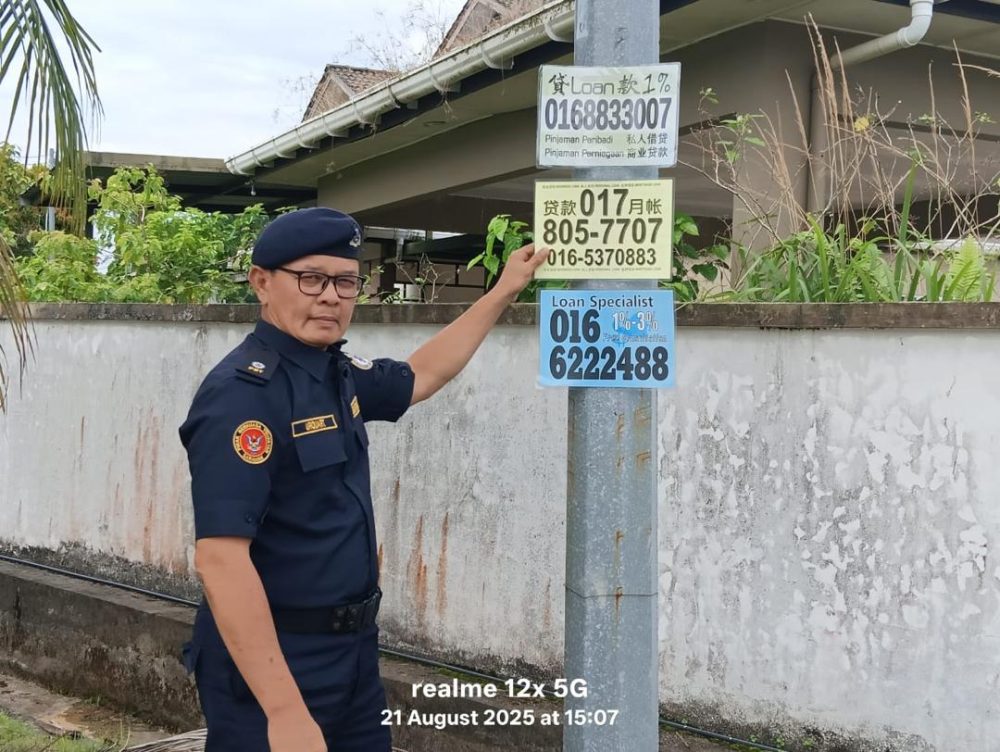
KUCHING: The widespread appearance of illegal loan shark and unlicensed moneylender advertisements across Kuching has posed to be a serious concern for residents, who say the issue persists despite repeated enforcement efforts.
The brightly coloured posters and stickers, plastered on road signs, lamp posts, traffic lights, and even nailed into trees, not only deface public property but also promote predatory lending activities targeting vulnerable groups.
Padawan Municipal Council (MPP) Chairman Tan Kai acknowledged the problem, saying his enforcement teams have been working continuously to remove the posters. “But within days, they will put them up again,” he said, describing the constant back-and-forth between enforcement officers and the syndicate like a “cat and mouse” game.
Residents have urged local councils and enforcement agencies to adopt tougher measures, such as tracing the phone numbers displayed and imposing heavier penalties, to curb the practice that is spreading into both urban and suburban areas.
In response to recent criticism from Michael Kong, Kuching South City Council (MBKS) Mayor Dato Wee Hong Seng defended his council’s consistency in tackling the issue.


BOTH councils MBKS and MPP hard at work taking down illegal advertisements from money lenders.
“For the record, MBKS enforcement has been carrying out daily operations to remove these illegal advertisements. This is not something we do occasionally or only when it is highlighted in the media. It is part of our daily duty and Standard Operating Procedure (SOP),” Wee said.
He added that MBKS has documented proof, including photographs taken on August 21 showing officers removing posters before Kong’s remarks were issued.
Wee also reminded that under the Local Authorities (Advertisements) By-Laws, 2012, offenders can be fined up to RM5,000 or jailed for up to six months, with continuing offences attracting an additional RM200 fine per day.
However, he stressed that councils cannot resolve the matter on their own. “These operators are organised, mobile and often act beyond council boundaries. Effective eradication requires collective efforts from the police, local councils and other enforcement agencies,” he said.
When asked what further solutions could be implemented once and for all to curb the rampant problem as they can contact the numbers available in these illegal advertisements, Wee has yet to respond.
By Connie Chieng